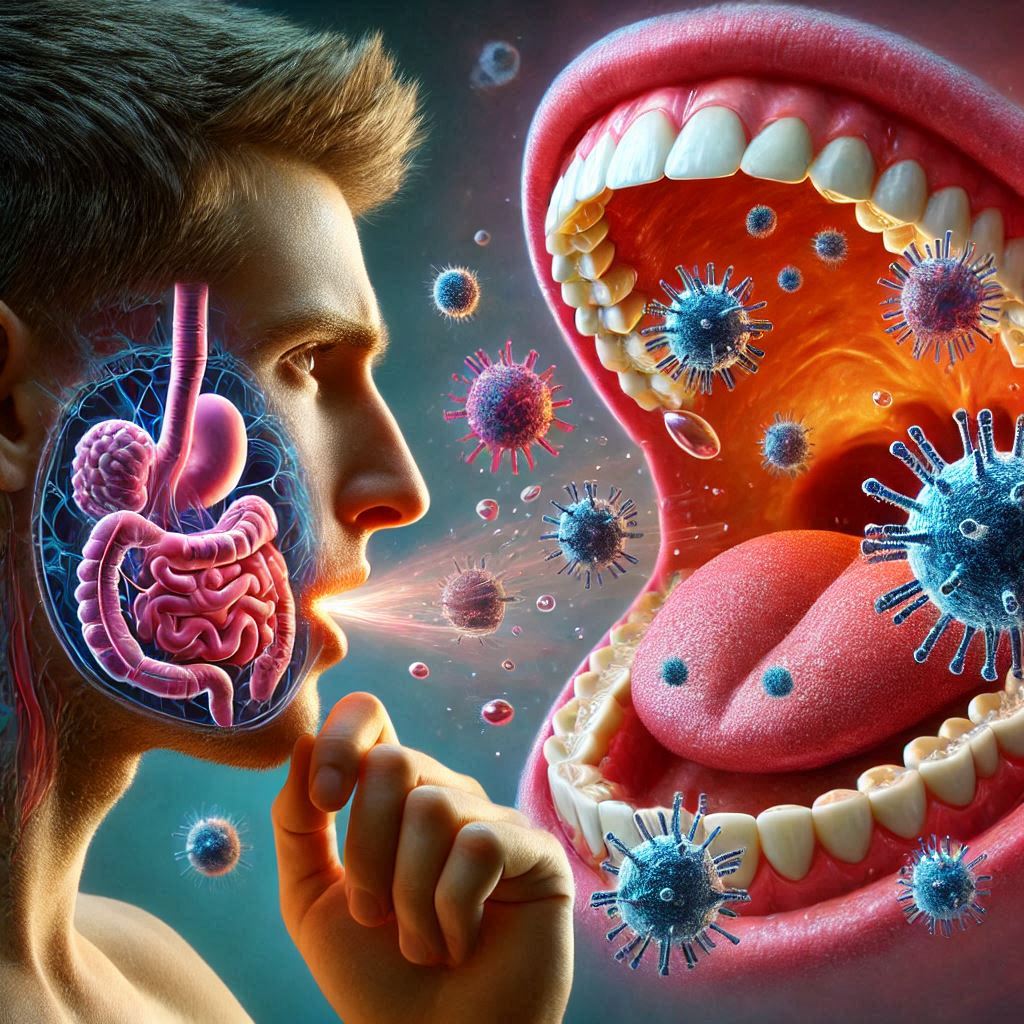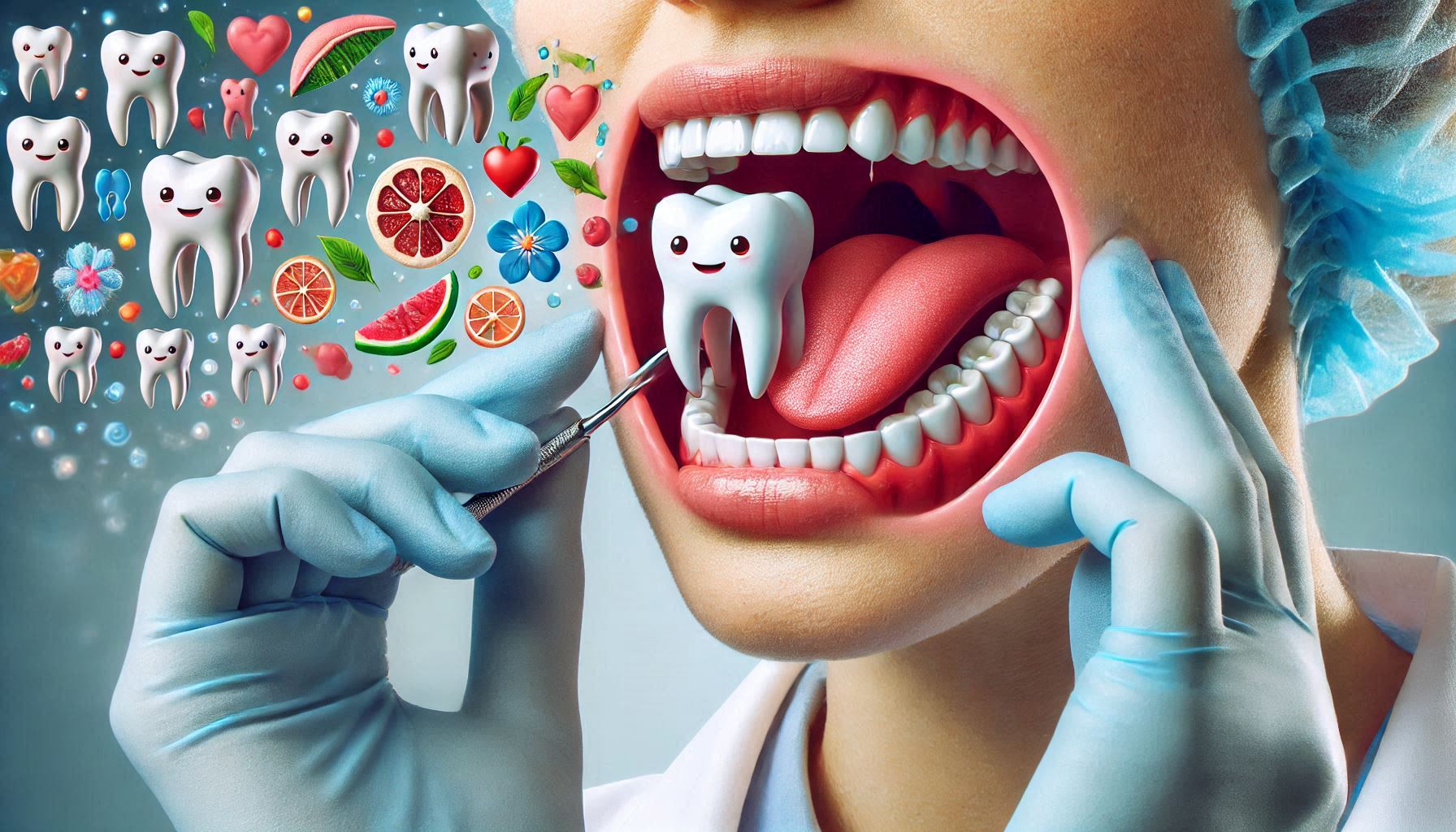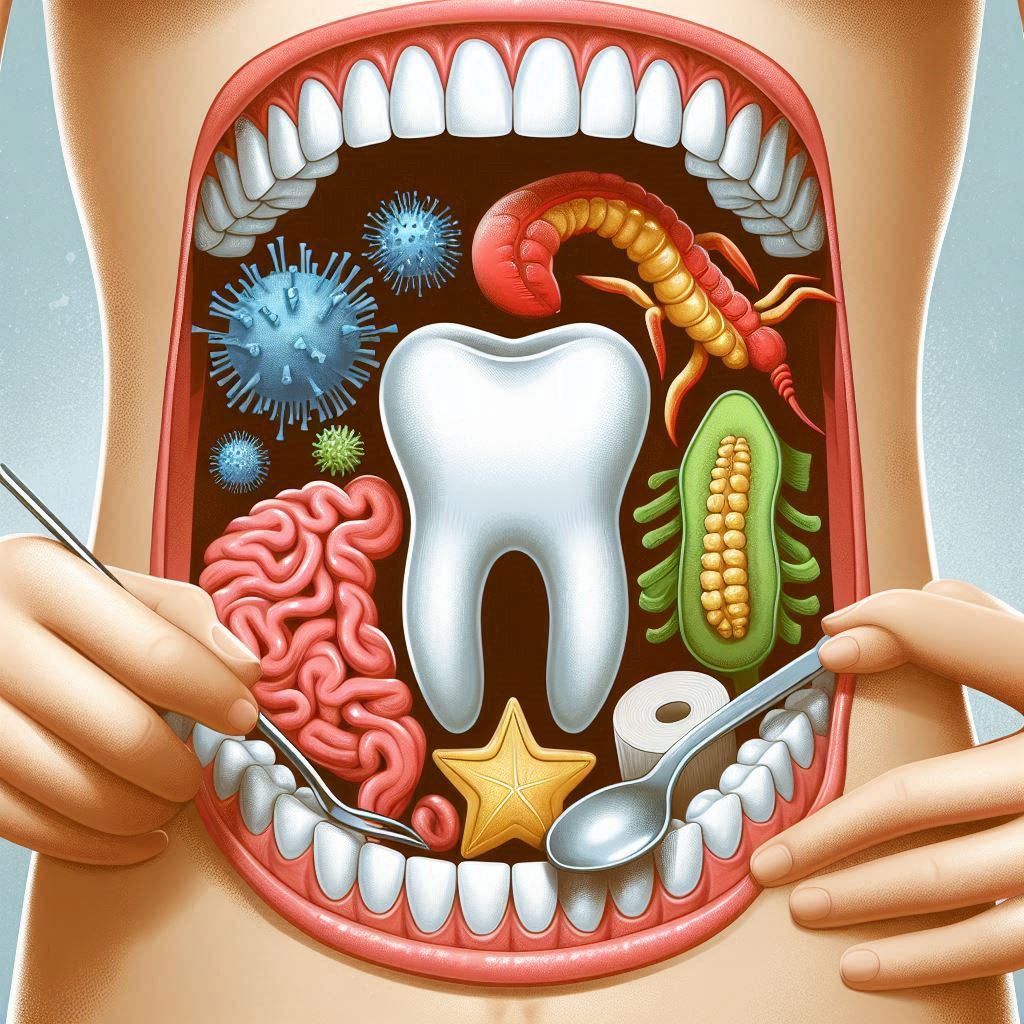Introduction
Saliva may seem like an ordinary bodily fluid, but it plays an extraordinarily complex and critical role in the health and functioning of the human body. Often taken for granted, it is involved in a multitude of processes ranging from digestion to immunity and tissue repair. The mouth, with its various systems and processes, relies heavily on saliva for protection, lubrication, and physiological function. Its antimicrobial and enzymatic components act as frontline defenses against pathogens, while its buffering system maintains a healthy pH environment in the mouth.
This guide will explore the multifaceted role of saliva in the body, focusing on its contribution to oral hygiene, digestion, immune defense, and systemic health. It will delve into the composition of saliva, its physiological and biological functions, and its critical importance in overall health and disease prevention.
The Composition of Saliva
Saliva is a dynamic and complex fluid that is produced by the salivary glands. It is composed of more than 99% water, but also contains a variety of other essential components that work together to perform its various functions.
1. Water
The most abundant component of saliva is water. Water makes up about 99% of saliva, and its primary role is to maintain moisture in the mouth. It is essential for helping food and liquids pass through the digestive system, ensuring that nutrients can be absorbed by the body. Furthermore, water in saliva provides a medium through which other components of saliva, such as enzymes and antimicrobial proteins, can be transported throughout the mouth. It also plays a crucial role in keeping the mouth hydrated and preventing dry mouth (xerostomia), which can have significant impacts on oral and systemic health.
2. Electrolytes
Saliva contains a variety of electrolytes, including sodium, potassium, calcium, magnesium, bicarbonate, and phosphate. These electrolytes serve several functions:
- Buffering capacity: Bicarbonate ions help neutralize acids produced by bacteria in the mouth, preventing the demineralization of tooth enamel and reducing the risk of dental caries (cavities).
- Maintenance of pH: Saliva helps maintain the neutral pH of the mouth, which is essential for the proper functioning of enzymes and to protect oral tissues from damage.
- Electrolyte balance: Potassium and sodium play important roles in maintaining the ion balance within the mouth and influencing the electrical properties of the salivary glands.
3. Enzymes
Enzymes in saliva are critical for the initial stages of digestion and for maintaining oral health:
- Amylase: The most well-known enzyme in saliva is amylase, which is responsible for breaking down starches into simpler sugars. This process begins as soon as food enters the mouth, helping to digest carbohydrates before they are swallowed.
- Lingual Lipase: This enzyme aids in the breakdown of fats, particularly in infants, but continues to play a role in fat digestion in adults as well.
- Proteases: These enzymes break down proteins and can aid in the digestion of food. Though their activity is less significant in the mouth, they still contribute to the initial stages of protein breakdown.
4. Mucins
Mucins are glycoproteins found in saliva that have a high molecular weight and contribute to the viscous nature of saliva. Mucins help lubricate the mouth, facilitating smooth swallowing and speech. They also play a protective role by coating the oral tissues, forming a barrier that prevents pathogens from attaching to the mucosal surfaces.
5. Antimicrobial Proteins
Saliva is rich in antimicrobial proteins, which help protect the oral cavity from harmful microorganisms. These proteins include:
- Lysozyme: This enzyme targets bacterial cell walls, breaking them down and preventing bacterial proliferation.
- Lactoferrin: This protein binds iron, depriving bacteria of an essential nutrient and preventing bacterial growth.
- Histatins: These small peptides exhibit antifungal properties, helping to control the growth of fungi in the mouth, particularly Candida species, which can lead to oral thrush.
- Defensins: These peptides have a broad-spectrum antimicrobial activity, offering protection against both bacterial and viral pathogens.
6. Immunoglobulins
Immunoglobulin A (IgA) is the main antibody found in saliva. IgA is an important part of the immune system, playing a crucial role in mucosal immunity. It prevents harmful microorganisms from adhering to the surfaces of the mouth and throat, which could otherwise lead to infection. Salivary IgA is particularly important in defending against respiratory viruses and oral bacteria.
7. Other Components
Saliva also contains other substances that support both local and systemic health:
- Urea: Urea plays a minor role in maintaining the chemical balance in the mouth.
- Amino Acids: These are essential for cellular function and help in the regeneration and repair of oral tissues.
- Hormones and Growth Factors: Saliva contains small amounts of hormones such as cortisol and insulin, as well as growth factors that aid in tissue repair and regeneration.
Functions of Saliva
Saliva is essential for a variety of processes within the body, particularly those involving the mouth. Here, we explore its primary functions in greater detail.
1. Oral Lubrication
One of the most fundamental functions of saliva is providing lubrication. The mouth and throat contain sensitive tissues that are constantly exposed to the mechanical stresses of speaking, eating, and swallowing. Without proper lubrication, these tissues would experience friction, leading to discomfort, difficulty speaking, and even injury. Saliva, particularly the mucins it contains, ensures that the mouth remains moist, reducing friction and enabling smooth movement of the tongue and cheeks during chewing and swallowing. The lubrication provided by saliva also plays an important role in the formation of the bolus (the mass of chewed food) to facilitate swallowing.
2. Digestion
Saliva initiates the digestive process by breaking down food before it reaches the stomach. The digestive enzymes amylase and lingual lipase begin the breakdown of carbohydrates and fats, respectively, as food is chewed and mixed with saliva. This early enzymatic action contributes to the efficient digestion of food once it reaches the stomach and intestines.
The role of saliva in digestion extends beyond simply breaking down food particles. It also helps the body taste food, allowing the taste buds to interact with food molecules dissolved in the saliva. Without saliva, the sensory experience of taste would be significantly impaired.
3. Protection Against Tooth Decay
Saliva plays a key role in maintaining oral health, particularly in protecting teeth from decay. One of the most significant protective functions of saliva is its ability to neutralize acids in the mouth. Acidic environments are created when bacteria break down sugars and starches, producing acids as byproducts. These acids can erode the enamel of teeth, leading to cavities. By neutralizing the acid, saliva helps prevent this demineralization process and preserves tooth enamel.
In addition to neutralizing acids, saliva contains calcium and phosphate ions, which are vital for the remineralization of tooth enamel. When the enamel begins to break down due to acid exposure, these ions help restore the mineral content of the enamel, effectively reversing early stages of tooth decay.
4. Antimicrobial Defense
Saliva contains several antimicrobial components that help defend against infections in the mouth. These components are part of the body’s innate immune system, providing a first line of defense against pathogens. Lysozyme, lactoferrin, and histatins are just a few of the antimicrobial proteins found in saliva that help prevent harmful microorganisms from taking hold in the oral cavity.
Saliva also plays a role in washing away food particles and bacteria from the teeth and gums, further reducing the risk of infection and disease.
5. Wound Healing
Saliva has been shown to accelerate the healing of wounds in the mouth. When the soft tissues of the mouth are injured, for example, by cuts or sores, the growth factors and proteins in saliva stimulate tissue regeneration. These components contribute to the repair of the mucous membranes and promote faster healing, which is why oral wounds tend to heal more quickly than wounds in other parts of the body.
6. Taste and Sensory Function
The ability to taste food is essential for enjoying and properly digesting it. Saliva is necessary for the perception of taste, as the molecules in food must dissolve in saliva before they can interact with taste receptors on the tongue. This dissolution process allows the taste buds to identify the flavors in food, contributing to the overall sensory experience of eating.
Saliva also helps to moisten food, making it easier to chew and swallow. Without saliva, food would be dry and difficult to manage, leading to discomfort and impaired digestion.
7. Maintaining pH Balance
Saliva plays an important role in maintaining the pH balance in the mouth. The pH of the mouth can fluctuate based on what is consumed. For instance, acidic foods and beverages can lower the pH in the mouth, while alkaline foods can increase it. Saliva helps to buffer these pH changes, maintaining a neutral environment that is optimal for oral health. A balanced pH is necessary for proper enzymatic function, tissue health, and protection against bacterial overgrowth.
Saliva and Oral Health
The importance of saliva in oral health cannot be overstated. Saliva serves as a natural defense system against a range of oral health problems. Here, we will discuss its role in protecting against dental issues, gum disease, and other oral conditions.
1. Preventing Tooth Decay
Tooth decay is one of the most common oral health problems, and saliva plays a central role in preventing it. By neutralizing acids and promoting remineralization, saliva helps protect the teeth from the harmful effects of acid production by bacteria. The calcium and phosphate ions found in saliva are essential for rebuilding the enamel and reversing the early stages of decay.
Saliva also reduces the concentration of harmful bacteria in the mouth, such as Streptococcus mutans, a major contributor to tooth decay. Through regular salivary flow, bacteria are washed away, further reducing the likelihood of cavities forming.
2. Gum Health
Saliva also plays a role in maintaining healthy gums. Gingivitis, an early stage of gum disease, occurs when harmful bacteria build up along the gumline. The antimicrobial properties of saliva help prevent the proliferation of these bacteria, reducing the risk of gum inflammation and infection.
In addition, the buffering capacity of saliva protects the gums from the harmful effects of acidic food and beverages, reducing the risk of gum erosion and other problems.
3. Dry Mouth (Xerostomia)
A lack of sufficient saliva in the mouth can lead to dry mouth (xerostomia). This condition is uncomfortable and can cause a variety of oral health problems, including difficulty swallowing, speaking, and an increased risk of tooth decay and gum disease. Xerostomia can be caused by a number of factors, including medications, dehydration, and certain medical conditions such as Sjogren’s syndrome.
Treatment for dry mouth typically involves increasing hydration and using artificial saliva substitutes to help alleviate symptoms and protect the oral cavity.
4. Oral Cancer Risk
Saliva may also be compromised in individuals who are undergoing treatment for oral cancer or those diagnosed with certain systemic diseases. For example, radiation therapy can damage the salivary glands, leading to dry mouth and increased risk of dental decay. Proper care, including hydration and regular dental check-ups, is essential for managing the effects of reduced salivary flow.
Saliva’s Role in Immune Function
Saliva is a critical component of the body’s immune system, serving as a first line of defense against pathogens that enter through the mouth. It contains a variety of antimicrobial proteins and immunoglobulins that help neutralize harmful microorganisms.
1. Antibody Production
Immunoglobulin A (IgA) in saliva helps prevent harmful bacteria and viruses from entering the body by neutralizing them before they can attach to the mucosal surfaces in the mouth. This form of immune protection is particularly important in preventing respiratory infections, dental infections, and viral illnesses such as the common cold.
2. Inflammatory Response
Saliva also contains cytokines that mediate the inflammatory response. When pathogens are detected in the mouth, cytokines signal immune cells to rush to the site of infection, thereby promoting an inflammatory response that helps fight off the invading microorganisms.
3. Preventing Oral Infections
The antimicrobial proteins and peptides in saliva, including lysozyme and histatins, prevent the overgrowth of harmful bacteria and fungi in the mouth, maintaining a healthy balance of the oral microbiota. By doing so, saliva reduces the risk of oral infections such as periodontitis, oral thrush, and gingivitis.
Saliva and Systemic Health
In addition to its crucial role in oral health, saliva has systemic health implications. Changes in the composition or quantity of saliva can be indicative of underlying health conditions, such as diabetes, dehydration, or autoimmune diseases.
1. Dehydration
Saliva is produced when the body is adequately hydrated. If you become dehydrated, the salivary glands will reduce saliva production, leading to dry mouth. This condition can lead to difficulties in speaking, swallowing, and tasting food, as well as an increased risk of tooth decay and oral infections.
2. Diabetes
Dry mouth is also a common symptom of uncontrolled diabetes. High blood sugar levels can affect the function of the salivary glands, leading to reduced saliva production and the subsequent risk of oral health problems.
3. Autoimmune Diseases
Conditions such as Sjogren’s syndrome, which involve the immune system attacking the salivary glands, can lead to chronic dry mouth. This condition not only affects saliva production but can also lead to difficulty swallowing, speech problems, and an increased risk of oral infections.
Conclusion
Saliva is a vital component of the human body, serving functions that go well beyond basic lubrication. As a natural defense system, it plays a crucial role in digestion, oral health, immune protection, and overall well-being. The complex composition of saliva, which includes water, electrolytes, enzymes, antimicrobial proteins, and antibodies, allows it to perform these protective and supportive functions effectively. One of saliva’s primary roles is aiding digestion, particularly by breaking down carbohydrates through enzymes like amylase. This process begins in the mouth, preparing food for further digestion in the stomach and intestines. Saliva also provides important protection to the oral cavity by neutralizing acids, preventing tooth decay, and promoting the remineralization of tooth enamel. Additionally, its antimicrobial properties, including proteins like lysozyme and lactoferrin, help fight off harmful bacteria, viruses, and fungi, contributing to a healthy oral microbiome.
Beyond digestion and oral health, saliva plays a key role in the immune system. It contains immunoglobulin A (IgA), an antibody that helps prevent pathogens from entering the body through the mouth and throat. This immunological function makes saliva an essential part of the body’s first line of defense against infections. Maintaining optimal salivary function is essential for overall health. Regular hydration and good oral hygiene practices help ensure sufficient saliva production, which in turn supports digestion, oral health, and immune defense. Awareness of conditions like dry mouth (xerostomia) or infections that affect salivary function is also important for managing health effectively. By understanding saliva’s multifaceted roles, individuals can take better care of their oral and systemic health, fostering long-term wellness and preventing complications.
SOURCES
Birkhed, D. & Lindqvist, S. (1995). Salivary secretion and its relationship to caries development and prevention. Journal of Dental Research, 74(10), 1755–1763.
Maruyama, T. & Sato, M. (2001). Antimicrobial effects of human salivary proteins and peptides. Journal of Clinical Dentistry, 12(3), 43–50.
Dawes, C. (2015). Saliva and oral health. Journal of Clinical Dentistry, 26(2), 27–34.
Zhang, L. & He, X. (2012). The role of saliva in the prevention of oral diseases. Oral Diseases, 18(7), 635–644.
Mandel, I. D. (1990). The functions of saliva. Journal of Dental Research, 69(4), 1217–1224.
Löe, H. (2000). Oral hygiene in the prevention of caries and periodontal disease. International Dental Journal, 50(1), 33–45.
Nayak, P. A. & Sreedharan, S. (2005). The role of saliva in oral health: A review. Indian Journal of Dental Research, 16(2), 74–79.
Nagler, R. M. (2004). Dry mouth and dental health: Diagnosis and management. The New England Journal of Medicine, 351(8), 829–834.
Navazesh, M. (1993). Methods for collecting saliva. Annals of the New York Academy of Sciences, 694(1), 72–77.
Stokes, M. A. & Unger, R. B. (2010). Salivary biomarkers for detecting oral cancer. Oral Oncology, 46(1), 1–7.
Oppenheim, F. G. & Aprea, L. (2011). Salivary proteomics: The clinical value of saliva. Journal of Proteomics, 74(9), 1594–1602.
Schipper, R. G. & Rosenberg, M. (2007). Salivary secretions and immunity in oral health and disease. Journal of Dental Research, 86(12), 1130–1135.
Fox, P. C. & Mandel, I. D. (2002). Saliva and the treatment of xerostomia (dry mouth). Journal of Clinical Dentistry, 13(1), 19–26.
Huang, H. Y. & Chen, L. (2014). The role of saliva in oral cancer diagnostics. Oral Oncology, 50(5), 444–453.
HISTORY
Current Version
January 20, 2025
Written By:
SUMMIYAH MAHMOOD




